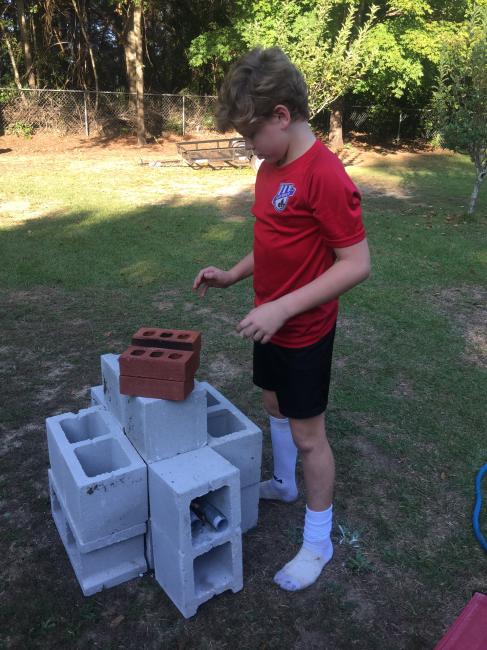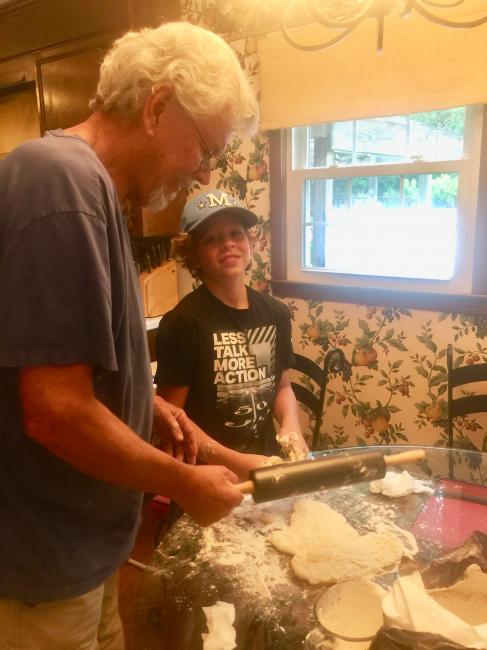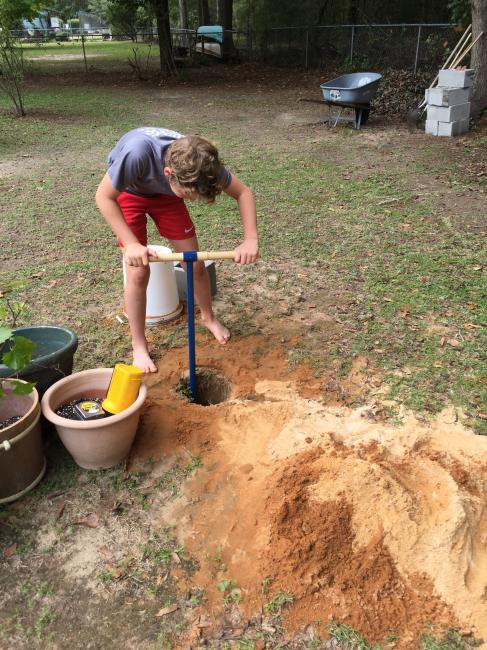What to say to kids instead of “be careful!”
Thought this was worth sharing with any parents. I like the spirit behind this idea – get their brains configured the right way early on! You can see how small differences in wording make the difference between being average and having an aware/prepper mindset.
-
Comments (19)
-
Jay ValenciaContributor - June 6, 2020
I’m a parent and this is actually pretty timely. As I’ve been around my kids more during the SIP orders, I have sort of tried to find different ways of saying things I normally say simply because I’m saying them more often. Does that make sense?
Using the example in the pic, I feel like I say “be careful” constantly during playtime, like a mindless auto-reaction. So partly to make myself feel more sane, I’ve started mixing it up. I’ll say “that’s scary, right?” or things like that to make them more aware of what’s actually dangerous instead of just warning them constantly.
But this strikes me as a no brainer and worthwhile! Good advice!
-
Olly Wright - June 8, 2020
What is SIP?
-
Jay ValenciaContributor - June 8, 2020
Sorry! Shelter In Place. What we were doing the last few months with the virus.
-
Matt Black - June 18, 2020
TIL (Today I learned…)
-
-
SeaBee - June 7, 2020
This is excellent, thanks so much for sharing. I’m a childhood educator and this is very similar to how I narrate for my own kids and my students. Framing is everything.
-
JB - June 8, 2020
My mom was an English teacher, so she would use phrases like this, partially to make me more aware of the world (I hope) but also to get me to describe things more often, which led to being better with words as I got older. I know that’s not the point of the image, but it’s a nice byproduct of asking more exploratory questions.
-
Ef Rodriguez - June 9, 2020
I might be remembering wrong, but I recall friends who are Montessori teachers saying they use similar language with kids because there are multiple benefits, one of which is what you said about vocabulary and being descriptive. I think another benefit was it helping develop more of a sense of confidence and autonomy.
-
-
Conrad B - June 8, 2020
Nailed it. Parents should leap on any chance to get their kids to vocalize the world around them. Even if it’s the scary stuff. It emboldens them because they get experience early on talking things out. There was some research back in the late 2000s about how kids need to hear a certain number of words everyday in order to develop fully during their first few years. I think it was 30,000. I don’t know if that was proven or not, but it stuck with me. And the alternatives in the image are a lot better for conversations than just yelling every time children encounter something outdoors.
I found this link since it’s on my mind now:
-
Cia - July 20, 2020
These suggestions are great for typical children. For autistic ones like mine, and it’s over 3% of American children now, you need to go much slower and have an organized plan for teaching and practicing discrete structures and vocabulary. Each achievement makes all the rest easier. I’ve used the wonderful Cambridge University English as a Foreign Language texts. For a young child, I’d start with Super Safari, which seems to no longer be on Amazon. I’m sure it’s still at the Cambridge catalogue site. I found a copy here just now: https://www.fruugo.us/super-safari-american-english-level-1-students-book-with-dvdrom-by-herbert-puchta-g-nter-gerngross-peter-lewis-jones/p-50414585-100992056?language=en&ac=google&gclid=CjwKCAjwgdX4BRB_EiwAg8O8HebYdmyQwa2ZRZIiK3dGEZ352t-3Qf3QDygkbNJhcLAfvsbHyNdhjBoCAQoQAvD_BwE
-
-
Ripplet - June 8, 2020
I’m not a parent, but this struck a cord with me as my mum only blocked me from doing any kind of activity that was even remotely adventurous. Like climb the taller childrens slide in my playground. It took me a long time to get over my fears (and still working on them) so kudos on all the parents here who ancourage their childrens development in a sane manner.
-
TraceContributor - June 13, 2020
My old Army buddy says, as parents, we say “be careful” when we really don’t want the kids to do what they’re getting ready to do, but don’t have a good reason to tell them no 🙂
This is a great idea. Helping them be more specific and be more aware of their surroundings are skills that will last a lifetime.
-
woodswalker - June 13, 2020
I like you list and will use it. Ive been using “when” language instead of “if” language for a while. This empowers them to think through a situation and to expect that it could occur.
ex: When you get lost in the mall what will you do?
-
Rita Colgan - October 25, 2020
I believe it’s best to be truthful with children. Don’t give them reason to lack trust in you as their parent. I like the above awareness and problem-solving shown above. Make them think calmly, and trust themselves to use wisdom. This will serve as a guide as they grow and mature. Best wishes to all parents, everywhere.
-
Michelle - October 26, 2020
When my daughter was little I would find my self using the word ‘stop’ constantly in everyday conversations. For example, we need to stop playing now and get ready for bed, type of comments. So if I ever needed her to stop something immediately because she could come to harm, i.e. not run into the street after that ball she was chasing without paying attention, I would instead yell ‘pause’, and she would immediately stop and look at me for further instructions. Saved her life when she almost ran in front of that car at less than 3 years old. I made sure to use the word seldomly and only when she needed to stop something immediately. Because it wasn’t used for every situation she never ignored
pause when sometimes she would ignore stop because she heard it so often. She’s a teenager now and still immediately stops what she’s doing if I say pause. Though the word doesn’t get used often nowadays.
I’m going to try some of these other ways of saying things to her because as a teenager I find myself lecturing her and she tunes me out. Maybe saying things this way will open the conversations up and she’ll listen because she’s part of the conversation instead of ignore me because she’s not an active participant.
-
Winston Smith - October 27, 2020
I’m working on passing on survival skills to the next generation. I try to talk and show my 10-year-old grandson skills that may help him down the road. It’s a lot of fun and gives me peace of mind.
He built a rocket stove. Used too many cement blocks, but we cooked on it using very little fuel.
Making hardtack. They turned out great.
Our present project: digging a pitcher pump well.
If he never needs these skills (and I hope he doesn’t), we’ve created some great memories. I try not to scare him, but I want him to be cognizant of the fact that bad things could happen.
-
Gideon ParkerStaff - October 27, 2020
Those look like really great memories! Thank you for sharing. It made my day!
-
-
Matt Black - October 29, 2020
I think this is really important. Not only does this engage the child’s thinking, it illicits cooperation. Having a sense of situational awareness is key to survival.
That said, I wonder, what ways can a parent communicate the gravity of an emergent situation. Certainly one would want to engage the child’s thinking, mindfulness, and situational awareness, in general, but what of those scenarios in which there is an immediate danger/threat to life? Don’t get me wrong. There’s a time and a place for “Be careful” and “notice how…” in brain development, but when you notice someone has suddenly brandished a weapon, how will you better communicate, “Danger! Get down!” or “Come to me now!”?
I also realize that there may be a couple schools of thought on the role of fear -and when fear might or might not be beneficial. It seems that fear would be highly beneficial (not to mention appropriate) in the latter situation. One should understand and be fearful in life threatening situations. Then again, fear isn’t conducive to clarity of thought because it disengages the prefrontal cortex and the amygdala takes over from there and manifests as fight, flight, or freeze.
I’m curious, what are others thinking for these types of scenarios?
-
Winston Smith - October 30, 2020
Great post. I read Robert Sopolsky’s (Stanford retired professor) book “Behave” a few years ago. Not an easy read. This is a short (8 minutes) lecture. https://youtu.be/Gp2GMujyC58
Some of his lectures are online (google: Stanford University Robert Sopolsky). This is one on aggression: https://youtu.be/Gp2GMujyC58 Long video, but good. Grab a cup of coffee and enjoy it.
-
-
ccross - November 8, 2020
Wow. I absolutely love this, thank you for sharing!
-
Maddi - December 22, 2021
Love this! I didn’t realize how much I said this to my 2 year old son till he started repeating “Be careful, (his name)” when he started doing risky things…
-
- News for the Week 2024-04-15 - 12 hours ago
- Chickens for preppers: Important considerations - 15 hours ago
- Alexapure - 4 days ago
- Plants with Saponins - 1 week ago
- News for the week of 2024-04-08 - 1 week ago
This forum is heavily moderated to keep things valuable to as many people as possible. Full community policies are here. The basics:
- 1. Be nice to each other.
- 2. Stay focused on prepping.
- 3. Avoid politics, religion, and other arguments.
- 4. No unfounded conspiracies, fake news, etc.
- 5. Debate ideas, not people.



